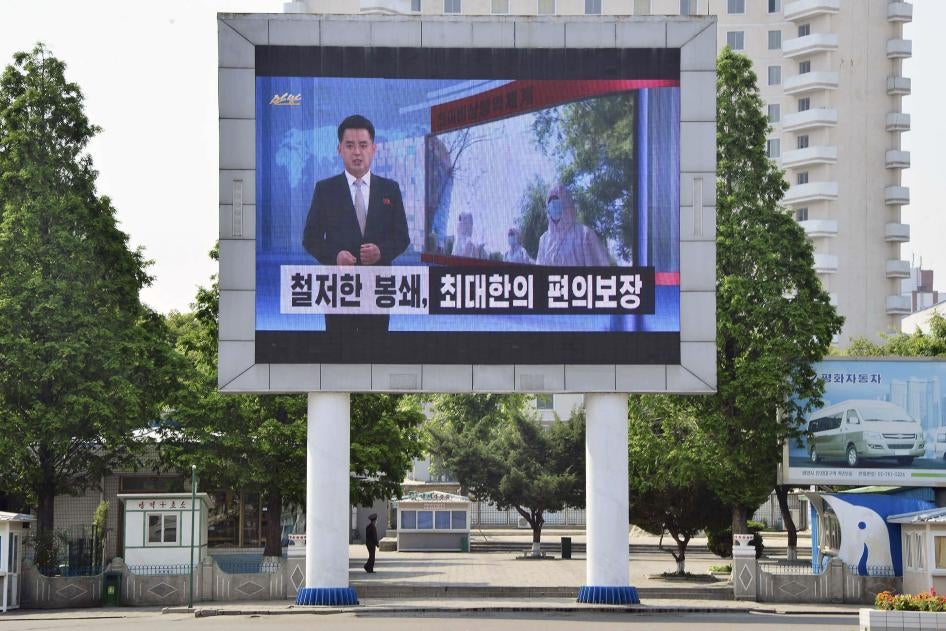(Jakarta) – The North Korean government in 2022 used the Covid-19 pandemic as a pretext to maintain extreme and unnecessary restrictions on basic freedoms, Human Rights Watch said today in its World Report 2023. The repressive policies deepened North Korea’s isolation while exacerbating the country’s humanitarian crisis.
The heightened restrictions have compounded the effects of decades of the North Korean government’s violations of the rights to freedom of movement, health, food, and access to an adequate standard of living. Even as millions of citizens endured severe food insecurity and lack of health care, the government in 2022 continued to prioritize the development and maintenance of nuclear weapons, conducting more than 30 long-range missile tests, a record number, representing hundreds of millions of dollars in military expenditures.
“The North Korean government, by sealing its borders, restricting imports, and limiting food distribution, is making life worse for North Koreans,” said Lina Yoon, senior Korea researcher at Human Rights Watch.
In the 712-page World Report 2023, its 33rd edition, Human Rights Watch reviews human rights practices in close to 100 countries. In her introductory essay, acting Executive Director Tirana Hassan says that in a world in which power has shifted, it is no longer possible to rely on a small group of mostly Global North governments to defend human rights. The world’s mobilization around Russia’s war in Ukraine reminds us of the extraordinary potential when governments realize their human rights obligations on a global scale. The responsibility is on individual countries, big and small, to apply a human rights framework to their policies, and then work together to protect and promote human rights.
Through 2022, the North Korean government made unauthorized border crossings with China and Russia more difficult, building or upgrading fences, guard posts, patrol roads, and other infrastructure. A directive imposed in 2020 remained in force, ordering soldiers to “unconditionally shoot” on sight anybody entering or leaving border “buffer zones” without permission.
The government also maintained a blanket ban on international travel and severe restrictions on domestic travel, while continuing to bar almost all official and unofficial international trade. Tighter lockdowns were imposed across the country after the government announced North Korea’s first official Covid-19 case.
The authorities also increased controls on domestic distribution of food and goods. A drought in May and flooding in July and August exacerbated these effects.
The government, possibly concerned about increased unrest due to people’s suffering during lockdowns, ramped up ideological campaigns and restricted access to unofficial, unsanctioned information. Media outlets with contacts inside the country reported crackdowns on authorized cell phones at border regions, and further tightening of controls over unsanctioned mobile phones and computers.
In April, North Korea’s leader, Kim Jong Un, marked his 10th year in power, maintaining the Kim family’s nearly 75 years of totalitarian rule, featuring widespread and severe deprivation of basic liberties, including rights to free expression, public assembly, association, and religion. It bans independent media, civil society organizations, and trade unions.
The government enforces its rule through arbitrary imprisonment, torture, collective punishment, enforced disappearance, executions, and forced labor. The government also maintained its system of political prison camps (known as kwanliso) in remote areas, where authorities subject perceived opponents of the government to torture, starvation rations, and forced labor.








